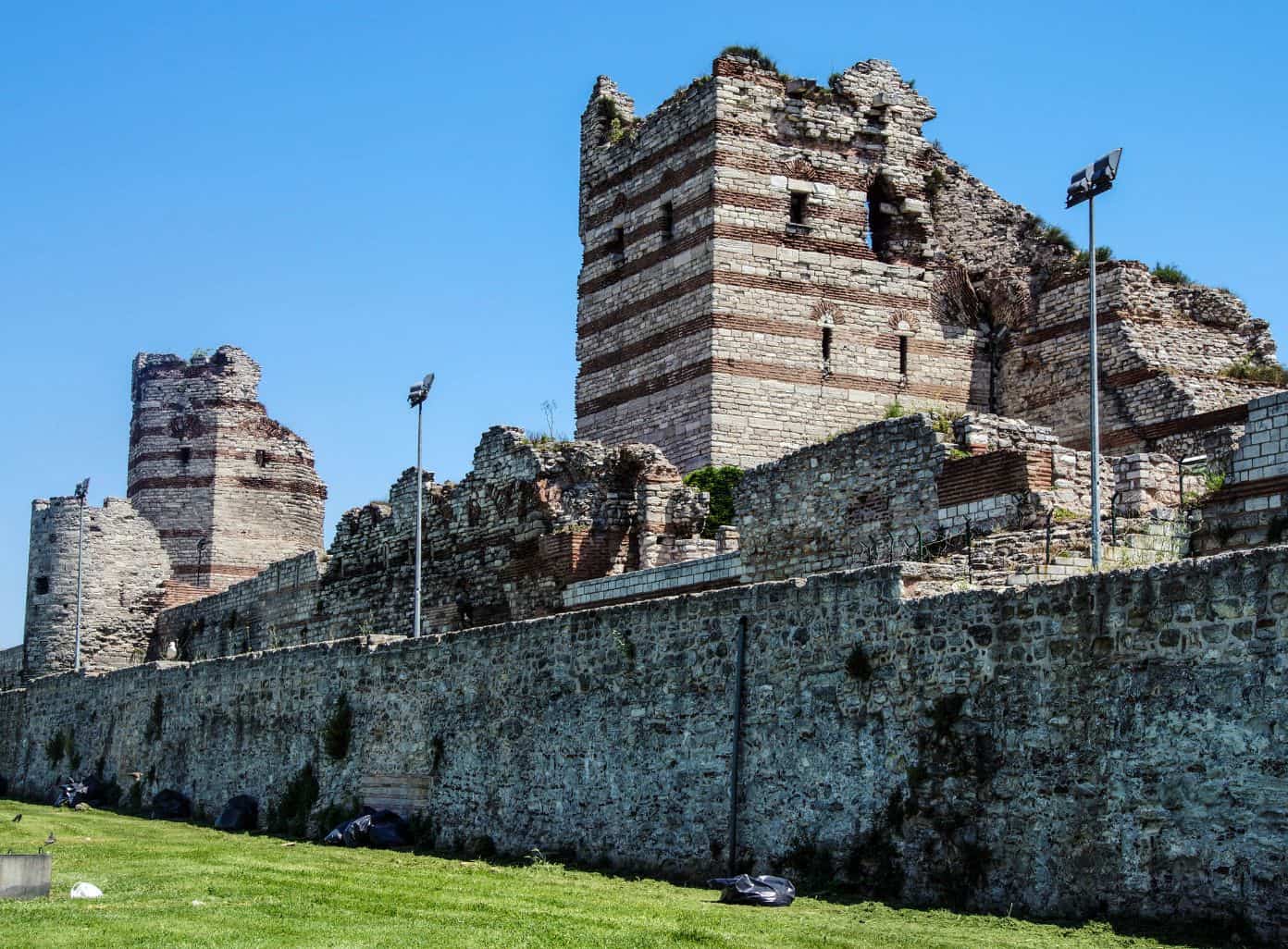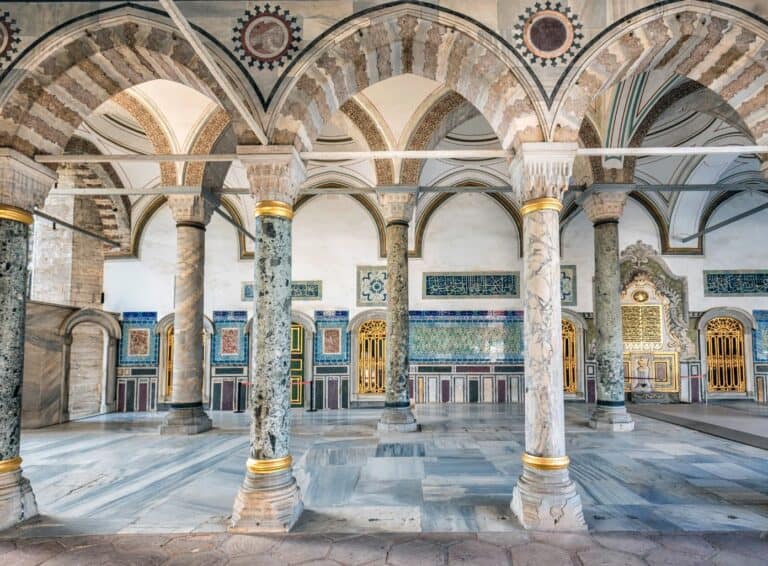Introduction to Turkey’s History
Turkey, a captivating country located at the crossroads of Europe and Asia, boasts a rich and diverse history that spans thousands of years. From ancient civilizations to modern times, Turkey has been a witness to numerous historical events and has left an indelible mark on the world. Understanding Turkey’s history is essential for anyone planning to visit this fascinating country.

Turkey: A Land of Rich History
Turkey, officially known as the Republic of Turkey, is a country that encompasses a wide range of historical landmarks, cultural influences, and ancient civilizations. Its strategic location has made it a melting pot of cultures, with influences from the Greeks, Romans, Byzantines, and Ottomans, among others.
From the Hittites, one of the earliest known civilizations, to the Byzantine Empire and the Ottoman Empire, Turkey’s history is a tapestry woven with stories of conquests, empires, and cultural exchanges. This land has witnessed the rise and fall of powerful empires and has been a hub of trade, religion, and art throughout history.
Importance of Understanding Turkey’s History
To truly appreciate the beauty and significance of Turkey, it is crucial to delve into its captivating history. Understanding Turkey’s history provides a deeper context for its historical landmarks, cultural influences, and modern society.
By exploring the ancient civilizations that once thrived on this land, such as the Hittites, Byzantines, and Ottomans, visitors can gain a profound appreciation for the historical significance of sites like Ephesus, Topkapi Palace, and Cappadocia. These architectural marvels serve as a window into the past, offering a glimpse into the lives of those who came before us.
Furthermore, comprehending the cultural influences that have shaped Turkey’s art, architecture, cuisine, and traditions allows visitors to immerse themselves in the country’s vibrant cultural tapestry. The Roman, Byzantine, and Ottoman influences can be seen in the country’s architectural wonders, while the flavors of Turkish cuisine reflect the fusion of diverse culinary traditions.
Lastly, understanding Turkey’s history helps to grasp the country’s current position in the global arena. From the establishment of the Republic of Turkey to its commitment to secularism and modernization, Turkey has undergone significant transformations that have shaped its present-day identity. Recognizing Turkey’s historical journey enables visitors to appreciate its unique blend of tradition and modernity.
Embark on a journey through time and explore the captivating history of Turkey. By understanding the historical context of this remarkable country, you will enhance your travel experience and develop a deeper connection with its people, culture, and heritage.

Ancient Civilizations
Turkey’s history is a tapestry woven with the threads of various ancient civilizations. Let’s explore three significant civilizations that have left an indelible mark on Turkey’s rich historical landscape: the Hittites, the Byzantine Empire, and the Ottoman Empire.
Hittites: The Earliest Known Civilization
The Hittites, one of the earliest known civilizations, flourished in Anatolia (modern-day Turkey) around 1600 to 1200 BCE. They established a powerful kingdom and left behind an impressive legacy. The Hittites were renowned for their advanced military tactics, diplomacy, and legal systems. Their capital, Hattusa, was a bustling city adorned with monumental temples, palaces, and fortifications. The Hittites were also skilled in metallurgy and left behind remarkable bronze sculptures and artifacts that provide insight into their culture and way of life.
Byzantine Empire: The Flourishing Eastern Roman Empire
The Byzantine Empire, also known as the Eastern Roman Empire, emerged from the remnants of the Roman Empire and lasted from the 4th century CE until the 15th century CE. Byzantium, later renamed Constantinople and now Istanbul, served as its capital. The Byzantine Empire was renowned for its architectural marvels, including the iconic Hagia Sophia, intricate mosaics, and grand palaces. The empire’s influence extended beyond architecture, encompassing art, literature, and religion. The Byzantines preserved and expanded upon the knowledge of the ancient Greeks and Romans, leaving a lasting impact on the cultural heritage of Turkey.
Ottoman Empire: The Powerful Islamic State
The Ottoman Empire, spanning from the 13th century CE to the early 20th century CE, emerged as a powerful Islamic state that conquered vast territories across Europe, Asia, and Africa. Istanbul served as the empire’s capital, where magnificent structures like the Topkapi Palace and the Blue Mosque were built. The Ottomans are revered for their impressive military tactics, administrative systems, and contributions to art and architecture. Turkish cuisine, music, and traditions bear the influence of this influential empire.
As we delve deeper into Turkey’s fascinating history, we will uncover more about the historical landmarks, cultural influences, and the modern evolution of this captivating country. The tapestry of Turkey’s history is a testament to the rich heritage that awaits those who explore its diverse landscapes and vibrant cultural mosaic.
Historical Landmarks
Turkey is a country steeped in history, with a rich tapestry of historical landmarks that showcase its vibrant past. Exploring these landmarks provides a fascinating glimpse into the country’s ancient civilizations, empires, and the unique cultural influences that have shaped it over the centuries. Let’s delve into three prominent historical landmarks in Turkey: Ephesus, Topkapi Palace, and Cappadocia.
Ephesus: The Ancient City of Ruins
Located in the western part of Turkey, Ephesus is an archaeological site that offers a mesmerizing glimpse into the ancient world. Once a bustling city in the Hellenistic and Roman periods, Ephesus was renowned for its impressive architecture, grand monuments, and bustling streets.
Visitors to Ephesus can explore the well-preserved ruins of the Library of Celsus, the Great Theater, and the Temple of Artemis, one of the Seven Wonders of the Ancient World. Walking through the ancient streets, one can imagine the vibrant life that once thrived in this city.
Topkapi Palace: The Heart of the Ottoman Empire
Situated in Istanbul, Topkapi Palace served as the residence and administrative center of the Ottoman Sultans for nearly four centuries. This opulent palace offers visitors a glimpse into the grandeur and intricacies of Ottoman architecture and lifestyle.
Within the palace complex, you can explore the luxurious Harem, the Imperial Treasury, and the Courtyard of the Sultan. The exquisite design, ornate decorations, and stunning views of the Bosphorus make Topkapi Palace a must-visit landmark for those interested in Ottoman history.
Cappadocia: A Surreal Land of Fairy Chimneys
Moving away from the ancient cities and palaces, Cappadocia presents a unique and otherworldly landscape. Known for its distinctive fairy chimneys, Cappadocia is a region in central Turkey that captivates visitors with its surreal rock formations and cave dwellings.
Exploring Cappadocia offers the opportunity to witness the Goreme Open-Air Museum, a UNESCO World Heritage Site, where ancient cave churches adorned with Byzantine frescoes are preserved. Additionally, taking a hot air balloon ride over the captivating Cappadocian landscape provides a breathtaking experience.
By visiting these historical landmarks, travelers to Turkey can gain a deeper appreciation for the country’s fascinating history and the diverse civilizations that have left their mark. Whether it’s the ancient ruins of Ephesus, the grandeur of Topkapi Palace, or the surreal beauty of Cappadocia, each landmark offers a unique window into Turkey’s vibrant past.
Cultural Influences
Turkey’s rich history has been shaped by various civilizations and empires, each leaving behind a lasting cultural impact. These influences can be witnessed in different aspects of Turkish culture, including architecture, art and religion, and cuisine and traditions.
Roman Influence on Turkey’s Architecture
The Roman Empire played a significant role in shaping the architectural landscape of Turkey. Roman influence can be seen in the design and construction of numerous historical landmarks throughout the country. Structures such as the Library of Celsus in Ephesus and the Pergamon Theater in Pergamon showcase the grandeur and engineering prowess of Roman architecture.
Roman architecture in Turkey is characterized by features such as arches, domes, and intricate column designs. These architectural elements can be found in ancient ruins, temples, amphitheaters, and even in modern buildings inspired by Roman aesthetics. Visitors to Turkey can immerse themselves in the rich history and experience the grand architectural legacy left by the Romans.
Byzantine Influence on Art and Religion
The Byzantine Empire, the Eastern Roman Empire, exerted a profound influence on Turkish art and religion. Byzantine art, known for its intricate mosaics, frescoes, and iconography, can be observed in the breathtaking Hagia Sophia in Istanbul and the Chora Church in Istanbul. These masterpieces reflect the Byzantine Empire’s artistic legacy and its fusion of Eastern and Western influences.
In addition to art, Byzantine influence is also evident in the religious practices of modern-day Turkey. The Orthodox Christian faith, which emerged during the Byzantine era, continues to be practiced by a small but significant portion of the population. Byzantine religious traditions, rituals, and iconography have left an indelible mark on Turkey’s cultural fabric.
Ottoman Influence on Cuisine and Traditions
The Ottoman Empire, which spanned several centuries, has had a profound impact on Turkish cuisine and traditions. Turkish cuisine is a delightful fusion of various culinary influences, with the Ottoman Empire playing a central role in shaping its rich flavors and diverse dishes.
Ottoman cuisine is characterized by its use of aromatic spices, fresh ingredients, and a wide array of cooking techniques. From savory delicacies such as kebabs, pilafs, and mezes to sweet treats like baklava and Turkish delight, the culinary heritage of the Ottoman Empire continues to tantalize taste buds today.
Beyond food, the Ottoman Empire has also left its mark on Turkish traditions and customs. From traditional clothing styles like the Ottoman sarık (turban) to cultural practices such as hammams (Turkish baths) and tea drinking rituals, the Ottoman influence can be felt in various aspects of everyday life in Turkey.
By exploring these cultural influences, visitors to Turkey can gain a deeper appreciation for the country’s fascinating history and vibrant heritage. From the architectural splendors of Roman ruins to the artistic marvels of Byzantine art and the culinary delights of Ottoman cuisine, Turkey’s rich tapestry of cultures continues to captivate and inspire.
Modern Turkey
As we delve into the rich tapestry of Turkey’s history, it’s essential to explore the modern era that has shaped the country as we know it today. Modern Turkey encompasses a period marked by significant political and societal changes, transforming the nation into a vibrant and dynamic player on the global stage.
The Establishment of the Republic of Turkey
Following the collapse of the Ottoman Empire in the aftermath of World War I, Mustafa Kemal Atatürk led a transformative movement that culminated in the establishment of the Republic of Turkey in 1923. Atatürk, revered as the founder of modern Turkey, implemented sweeping reforms aimed at modernizing the country and separating religion from politics.
Under Atatürk’s leadership, Turkey underwent a series of changes that included the adoption of a new legal system, the introduction of Latin script, and the promotion of gender equality. These reforms laid the foundation for a secular and democratic nation, setting Turkey on a path of progress and development.
Secularism and Modernization
One of the defining features of modern Turkey is its commitment to secularism. The principles of secularism were enshrined in the Turkish Constitution, ensuring the separation of religion and state affairs. This approach has played a crucial role in fostering a diverse and inclusive society.
In the pursuit of modernization, Turkey has embraced economic growth, technological advancements, and educational reforms. The country has made significant strides in various sectors, including industry, tourism, and infrastructure. Istanbul, the vibrant metropolis bridging Europe and Asia, has become a symbol of Turkey’s modernization and cosmopolitan spirit.
Turkey’s Role in the Global Arena
Modern Turkey has emerged as a prominent player in the global arena, with its strategic geographical location, cultural heritage, and economic potential. The country serves as a bridge between Europe and Asia, making it a vital hub for trade, diplomacy, and cultural exchange.
Turkey actively participates in international organizations such as the United Nations, NATO, and the G20, contributing to global peace, security, and economic cooperation. Its diplomatic efforts have fostered relationships with countries around the world, positioning Turkey as a regional power.
Furthermore, Turkey’s cultural influences, historical landmarks, and natural beauty continue to attract tourists from across the globe. The country’s rich history, diverse cuisine, and breathtaking landscapes make it a popular destination for travelers seeking an immersive and enlightening experience.
As modern Turkey continues to evolve, its history remains an integral part of its identity and serves as a reminder of the nation’s resilience, progress, and contribution to the world.
Explore more about Turkey’s history, attractions, and cultural heritage in our articles on Turkey, Turkey’s architecture, and Turkey’s tourism.


